











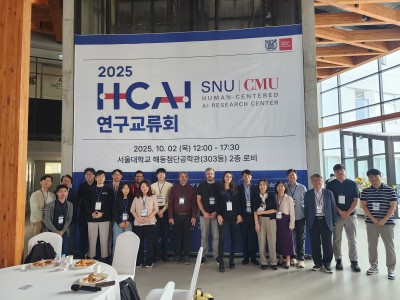 2025 SNU-CMU HCAI Research Exchange WorkshopH인기글
2025 SNU-CMU HCAI Research Exchange WorkshopH인기글 The 2025 Human-Centered AI (HCAI) Research Exchange Workshop included participation from several industry organizations, such as CJ AI Lab, KT Responsible AI Center, LG Electronics Global Partnership Team, SK Innovation, Samsung Electronics, and Krafton. The workshop was held on October 2, 2025, at Seoul National University (SNU) and brought together faculty from SNU, Carnegie Mellon University (CMU), and industry researchers to share progress in human-centered AI research and strengthen collaboration.
The event consisted of three research sessions. The first session, Customer-Facing AI, featured presentations from Prof. Alexandra Ion (CMU), Prof. Mayank Goel (CMU), Hyunseung Kim (AI Researcher, Krafton), and Prof. Junhwan Lee (SNU), focusing on AI systems that directly interact with users and enhance user experience.
The second session, Future of Work AI, was led by Prof. Scott Hudson (CMU), Prof. David Lindlbauer (CMU), Youngho Kim (AI Research Lead, Naver), and Prof. Gahgene Gweon (SNU). Speakers explored how AI can support productivity and reshape future working environments.
The final session, Responsible AI, included talks by Wanjin Park (Director, KT Responsible AI Center), Prof. Gunhee Kim (SNU), and Prof. Hajin Lim (SNU), addressing fairness, governance, and ethical deployment of AI technologies.
After the presentations, attendees participated in a poster exhibition and networking session, followed by a closing ceremony and prize raffle.
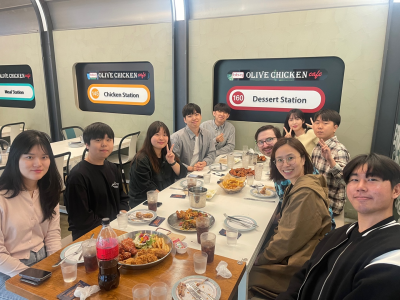 CMU Professor Nikolas Martelaro Visits SNU for Res…H인기글
CMU Professor Nikolas Martelaro Visits SNU for Res…H인기글 From May 4 to 8, 2025, Professor Nikolas Martelaro of Carnegie
Mellon University's Human-Computer Interaction Institute (HCII) visited Seoul
National University (SNU) as part of a research exchange. During his stay,
Professor Martelaro engaged in in-depth discussions with students and faculty
from the labs of Professors Gahgene Gweon, Joonhwan Lee, and Myunghwan Yun. The
visit focused on exploring future research opportunities and laying the
groundwork for collaborative projects.
Professor Martelaro, whose work centers on augmenting designers'
capabilities through novel technologies and methods, shared his
interdisciplinary approach to building human-centered design tools. Drawing
from his expertise in product design, human-robot interaction, and mechatronics,
he offered insights into how emerging technologies can better support
interaction design and autonomous systems research.
This visit marks the beginning of an exciting academic partnership
between CMU and SNU, particularly in the areas of interaction design and
intelligent system development.
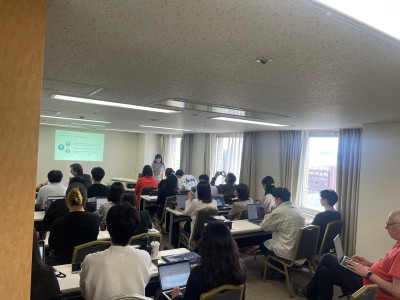 SNU-CMU Strengthen Research Ties at 2025 Annual Wo…H인기글
SNU-CMU Strengthen Research Ties at 2025 Annual Wo…H인기글 From May 1 to 2, 2025, Seoul National University (SNU) and
Carnegie Mellon University (CMU) held the annual SNU-CMU Collaboration Workshop
in Yokohama, Japan. The event was organized in conjunction with the ACM CHI
Conference, bringing together researchers and faculty members from both
institutions for in-depth academic exchange and strategic dialogue.
The first day of the workshop took place at the Pacifico Yokohama
Conference Center and Washington Hotel Sakuragicho. After a brief keynote
session, the sessions showcased ongoing projects covering a variety of topics
in the field of human-AI collaboration, including language models,
decision-making frameworks, and collaborative technologies.
Each presentation reflected active research engagements within
SNU, with speakers introducing technical developments and experimental findings
that are currently underway in collaboration with or inspired by work at CMU.
The presentations concluded with a wrap-up session, followed by a group dinner
that allowed for informal discussions and networking among attendees.
On the second day, participants convened for a morning brunch,
followed by a faculty discussion on the future direction of the SNU-CMU
collaboration. The conversation focused on shared goals and possible agendas
for ongoing cooperation in AI and human-computer interaction, including
potential future initiatives.
The 2025 SNU-CMU Workshop served as a platform to reinforce mutual
interests and reaffirm a commitment to long-term collaboration in research
areas at the intersection of AI, learning, and human-centered design.
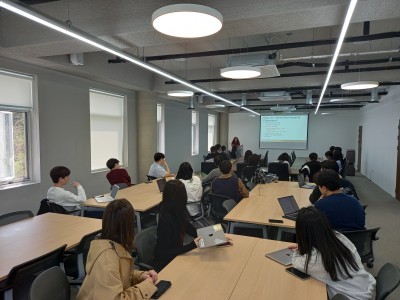 Distinguished Research Seminar by CMU Professor Ca…H인기글
Distinguished Research Seminar by CMU Professor Ca…H인기글 On April 23, 2025, Professor Carolyn Rosé of Carnegie Mellon University delivered an invited talk at Seoul National University as part of the IPAI Distinguished Seminar series.
In her talk titled “Human-AI
Teams: Modeling and Supporting Social Processes with LLMs,” Professor Rosé discussed her research
spanning over fifteen years on designing AI systems that support social
interaction and collaborative learning. Emphasizing recent advancements in
Generative AI and Large Language Models (LLMs), she introduced findings from
recent classroom studies that used LLMs to enhance reflection and collaboration
in software development education.
Professor Rosé, a renowned scholar in language technologies and
human-computer interaction, shared insights from her interdisciplinary work
published in over 330 peer-reviewed papers across five academic fields. Her
talk underscored how AI can be harnessed to foster more effective teamwork and
learning in large-scale educational settings.
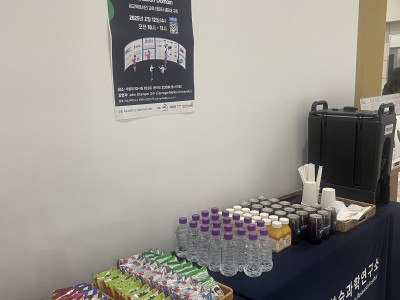 Seminar on Building an Educational Data Ecosystem …H인기글
Seminar on Building an Educational Data Ecosystem …H인기글 On February 12, 2025, Seoul National University’s Learning
Sciences Research Institute and Learning Data Research Center hosted a research
seminar titled “Establishing
an Ecosystem of Educational Data in the Public Education Domain.” The seminar featured Professor John
Stamper from Carnegie Mellon University, a globally renowned expert in
educational data mining and intelligent tutoring systems.
Professor Stamper, an Associate Professor at CMU’s Human-Computer
Interaction Institute and Technical Director of the Pittsburgh Science of
Learning Center DataShop—the world’s largest educational data repository—shared
insights into how machine learning and big data can shape the future of AI-driven
education. His talk focused on building adaptive learning systems that enhance
student outcomes based on large-scale educational data.
The seminar was held in a hybrid format, receiving attendees
interested in the intersection of technology and education.
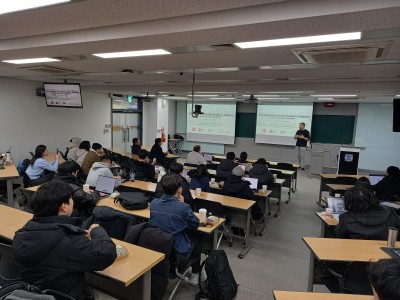 2025 IPAI Seminar Highlights Adaptive Future of Ex…H인기글
2025 IPAI Seminar Highlights Adaptive Future of Ex…H인기글 A research seminar hosted by the Interdisciplinary Program in
Artificial Intelligence (IPAI) at Seoul National University (SNU) was held on
February 11, 2025, featuring Professor David Lindlbauer from Carnegie Mellon
University (CMU).
During the seminar titled “The Future of Extended Reality
is Adaptive,” Professor Lindlbauer introduced novel approaches to
enhancing human interaction with digital information through Extended Reality
(XR). He emphasized the limitations of current XR systems—often static and prone
to information overload—and presented adaptive, context-aware solutions that
dynamically adjust virtual elements based on user behavior and environmental
context.
Drawing from his work at CMU’s Human-Computer Interaction Institute, Professor Lindlbauer showcased computational and multimodal techniques that enable seamless integration of physical and virtual worlds. The talk underscored how these technologies can expand the usability and effectiveness of XR in everyday digital environments.
The seminar served as a valuable opportunity for students and
researchers at SNU to engage with cutting-edge advancements in XR and explore
future research directions in adaptive human-computer interaction.
SNU-CMU Human-Centered AI Research Center
Seoul National University
Room 209, Building 942, 1 Gwanak-ro, Gwanak-gu
Seoul, Republic of Korea, 08826
